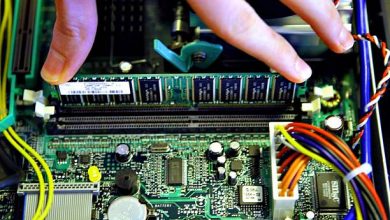How To Become A Neurosurgeon(Powerful Tips)

How To Become A Neurosurgeon: Neurosurgeons are medical professionals that specialize in the diagnosis and treatment of diseases and disorders of the nervous system, including the brain, spinal cord, peripheral nerves, and extra-cranial cerebrovascular system. Neurosurgery is a highly specialized field that requires extensive education and training. Neurosurgeons identify issues in these systems through the use of modern imaging techniques like CT scans and MRI scans; they then diagnose the issue and develop a treatment plan. Enough Info

Depending on the specific issue, neurosurgeons might perform a variety of procedures, including biopsies, spinal surgery, stereotactic radiosurgery, endovascular surgery, and computer-guided interventions. Additionally, neurosurgeons work closely with neurologists to monitor patient progress and make adjustments to treatments as needed. Although becoming a neurosurgeon is a difficult path, the benefits are great.
The base salary for a neurosurgeon in their first year is approximately $350,000, with top surgeons earning over $900,000. Neurosurgeons not only have the opportunity to better the lives of their patients, but they also make a very excellent income. Surgery for problems of the nervous system is a specialty of neurosurgeons. Communication between the brain and body occurs via the nervous system. https://enoughinfo.com/how-to-become-a-neurosurgeontips
To practice as a neurosurgeon, you must complete a six- to eight-year residency program, acquire certain skill sets, and prepare for and attend medical school.
Read Also: How to Step out of Your Comfort Zone
Expansion of Skill Sets
Early on, practice developing your patience, understanding, and empathy
These skills enable neurosurgeons to interact with, identify, and treat patients who may be in pain or distress. They might deal with those who are unable to express themselves clearly or who have particular requirements.
- Find common ground with new individuals, look for areas of difference, and strive to understand them. To comprehend another person’s feelings or the reasoning behind a decision, put yourself in their position.
- Dispel biases. We frequently have preconceived ideas about certain social groups. Instead of focusing on your differences with others, consider what you have in common.
- Observe people. A neurosurgeon must possess the capacity to concentrate on the needs and emotional state of others. To demonstrate that you are paying attention and making sure you comprehend what they are saying, paraphrase what individuals say to you.
- Think about picking up a new tongue. This ability is very valuable.
- Many times, you’ll run against people who don’t speak your language.
- Speaking another language can make it simple for you to interact with these patients and can make you stand out when you apply to medical schools. How to Handle a Bully in School
Regularly exercise your critical thinking and problem-solving abilities
Learn how to gather data and investigate issues to find solutions. Investigate topics you are unfamiliar with and rely on reliable sources of information to learn new things.
Construct 3D creations, and assemble puzzles
Neurosurgeons work on and near the brain, thus they must be skilled with their hands and have an understanding of spatial relationships. Consider how various elements interact. Put construct intricate models by hand. Learn how to gather data and investigate issues to find solutions.
- As neurosurgery involves delicate work, you will also need to be adept and agile with your hands. But don’t worry about it too much; you’ll get a lot of physical dexterity via practice.
Read Also: How To Reach Your Full Potential
Become more professional
Develop your teamwork skills and leadership potential. Medical professionals are aware of morality and ethical values. They must decide how to care for patients and carry out treatment strategies. https://enoughinfo.com/how-to-become-a-neurosurgeontips
Get ready for medical school
Attend high school science, biology, anatomy, and physics classes
Colleges are looking for applicants who can handle difficult and demanding coursework. You will benefit from these programs by performing well in the challenging undergraduate courses needed to enter medical school. What To Do When You Are Feeling Overworked (8 Good Strategies)
As soon as you can, volunteer in clinics, nursing homes, and hospitals
Learn how healthcare facilities operate, including interactions between employees and clinicians. Keep an eye on the way doctors handle patients and what they do. If you can, shadow a doctor who specializes in neurology or neurosurgery. How To Deal With Puberty(2023)
Get your bachelor’s degree by attending a college that is accredited
Make sure you enroll in courses that fulfill the prerequisites for medical school. Despite not being a prerequisite for entrance to medical school, biology is a major pursued by many successful medical students. If these are offered, think about majoring in neurobiology or neuroscience.
- A core curriculum for your degree should contain lab-based chemistry, organic chemistry, biology, calculus, and physics courses.
- Your chances of getting into medical school and succeeding there will increase if you take biochemistry, microbiology, and human anatomy subjects.
- A few medical schools offer six or seven-year combined undergraduate and medical school programs. Check out these programs if you’re interested in them.
Achieve good grades by studying
High competition exists in medical school. A 3.5 or higher GPA is preferable, but a 3.0 is still a goal.
- Particular importance is placed on your first-year biology grades. A student with a C or lower may be disqualified at some schools. When you are a freshman in college, aim to achieve a 3.75 GPA.
- Spend time each week reviewing the content taught in class via studying. Go through crucial facts with friends and join a study group.
- Buy, borrow, or rent course assessments and tests. If you require assistance, contact your college to arrange for a tutor or engage a private teacher.
- You will look better to admissions committees if you can raise your GPA. You will have the best chance of getting into the college of your choice if you do this. To be eligible for scholarships that will cover college costs, GPA is also crucial. How To Stop Being Jealous( Requirements 2023 )
Conduct research while a student
This is yet another method for differentiating oneself from other applicants. Participating in undergraduate research shows that you are diligent and curious, and it may enable you to gain more support and recommendations from your mentors. Inquire with your teachers whether they are engaged in any research initiatives that you could contribute to or if they know of any collaborators you could collaborate with. Additionally, look for undergraduate research opportunities at medical clinics (such as the Cleveland Clinic)
Read Also: How to handle a Bully in School
Consult with others
To be accepted into medical school, you must submit letters of recommendation from professors or employers who are familiar with you and your work. Take the chance to interact with professors by accepting a position as a research or teaching assistant.
Enrolling in medical school
Consider taking the Medical College Admissions Test (MCAT)
All medical schools in the US and many in Canada require candidates to pass this standardized test. One of the most crucial criteria for admission to medical school is this test score. Give yourself enough time to get ready.
- While some students prefer to complete four years of college before taking the MCAT, many students take the exam during their junior year after preparing for many months. If you have completed any summer classes or advanced placement material, you could decide to take the test earlier.
- Using material from biology, biochemistry, organic chemistry, general chemistry, physics, psychology, and sociology, the MCAT assesses students’ knowledge of fundamental concepts, scientific investigation, critical analysis, and reasoning. Try your best to become knowledgeable about these fields and develop your reading analytical abilities. How To Be An Eye Model
To take the MCAT, register
The MCAT is offered all year long at thousands of test centers around the US, Canada, and other locales, all of which are managed by the Association of American Medical Colleges (AAMC). For information on local test times and locations, contact the AAMC.
- To secure your selected test day or venue, register early—at least 60 days before the exam date. A charge and online pre-registration are required.
- Make sure your contact information is accurate and enter your information into the Scheduling and Registration System precisely as it appears on your identification (ID).
- If you can’t afford the MCAT test, you might be qualified for the Fee Assistance Program (FAP). Before you register to take the MCAT, you must submit an application and receive approval.
Read Also: How To Deal With Puberty(2023)
Take the MCAT
Bring a valid ID from the government and arrive at least 30 minutes early. Only yourself, your clothes, and a watch are allowed in the exam room. For your other personal belongings, including a cell phone, lockers and locks are typically available.
- Prior to the test, diligent study is advised. Aim for a 32 or above. [17] Purchase or rent an MCAT prep book, or enroll in a review program. Additionally, you can register for practice exams that will get you ready for the real deal.
- You may retake the MCAT up to three times per year and seven times overall if you don’t receive the score you were hoping for. Though certain institutions may average numerous scores while others may only consider the most recent or top score, keep this in mind.
Select a number of accredited medical schools with thriving neurosurgery programs to submit applications to
To select the finest medical colleges for you, you will need to research each institution because they might be very different from one another. Location, cost, curriculum, facilities, financial aid, enrollment in a residency program, and reputation are all important considerations. How To Learn Faster(Steps and Requirements)
Submit applications simultaneously to multiple recognized medical schools
You’ll have a better chance of being accepted if you do this. You may receive an admission early and still have time to apply to other schools if you choose institutions that participate in the Early Decision Program (EDP).
- In addition to the standard application materials—transcripts, MCAT results, and letters of recommendation—schools may additionally look at applicants’ personalities, leadership potential, and involvement in extracurricular activities. The majority of colleges demand interviews with members of the admissions committee.
- Your application will be sent to your chosen institutions via the American Medical College Application Service (AMCAS) and/or the American Association of Colleges of Osteopathic Medicine Application Service (AACOMAS). While osteopathic medical schools that provide the Doctor of Osteopathic Medicine (D.O.) degree utilize AACOMAS as their primary application process, US medical schools that grant the Doctor of Medicine (M.D.) degree use AMCAS.
- Don’t give up if you receive a negative response. Not everyone is accepted to their top-choice medical school, but with effort and commitment, you can enroll in one.
- The majority of applicants to medical school hold a bachelor’s degree minimum, and many also hold higher degrees. Consider earning a master’s degree or higher before reapplying if you have trouble getting into medical school.
- If you are chosen for an interview, research the school well so you can have insightful questions. Before you meet with the school, you might wish to rehearse your interviewing techniques. A positive first impression will increase your chances of receiving a job offer from the school.
Read Also: How To Be Good At Mathematics
Obtaining your M.D
Complete all of the M.D. or D.O. degree requirements
You’ll spend four years in medical school. In addition to learning practical skills, such as gathering medical histories and assessing patients under the guidance of seasoned doctors, this time will be spent in labs and classrooms. How To Deal With Period
- As soon as you can, find a resident and faculty mentor in neurosurgery. These mentors can assist you in putting together your residency application and also introduce you to neurosurgery clinics and operating rooms.
- You can determine if becoming a neurosurgeon is the correct career choice for you by enrolling in an elective while in medical school. Sub-internships should be completed during the fourth year of medical school if neurosurgery is of interest to you.
- By participating in the weekly didactic sessions and grand rounds at the neurosurgery residency program at your institution, you can also acquire exposure to the field of neurosurgery. In addition to learning more about neurosurgery, you can converse with faculty and residents during these events. 100 Romantic Love Messages For Her
Obtain high marks
To land a solid internship and residency position, later on, you want to perform well in medical school and establish contacts. It will be in your best interest to build relationships and obtain letters of recommendation.
Become involved in research initiatives
You should get some experience conducting research, ideally in the areas of neurology and neurosurgery. Your chances of being accepted into the residency of your choice will rise if you participate in research, as it will introduce you to the faculty and lead to new medical advancements. Healthy Aging Tips For Men Over 40 (14 Tips To Stay Healthy)
- Investigate the credentials, pursuits, and areas of research of the professors. Tell them about any opportunities for students to participate. Inform them of your interest and ask what is required to apply. 22 Top Foods For Promoting Heart Health(All You Need to Know)
- Your application to residency programs will look fantastic if you publish in a peer-reviewed journal regarding your study.
- You should start your research and shadow at this level in the summer after your first year of medical school.
- To network with residents and neurosurgeons from around the world, you can also go to national conferences like the American Association of Neurological Surgeons’ annual meeting.
Read Also: How To Write A Proposal(Steps and Requirements)
Becoming a neurosurgeon
Enter a residency program by applying
Students interested in a career in neurosurgery should apply through the Neurosurgery Match Program at the end of medical school. The program matches applicants with neurosurgical training programs.
- Approximately one to three residents are accepted into each of the approximately 100 neurosurgery residency programs in the US. Though the chances of acceptance are excellent for candidates in neurosurgery, you will need to apply to many residency programs to be sure.
- Consider your options. Given how difficult it is to match for a residency in neurosurgery, there is a chance that you won’t. Consider your next course of action. How may your application be made better?
- In the year before you can reapply, what else can you do except research and internships? In addition to applying for neurosurgery employment, you might want to think about applying for general surgical positions. How to Build a Sustainable and Healthy Diet Plan (2023)
- Discuss possible steps you could take to be ready for this scenario with your advisors.
Take the internship
Typically, you’ll do your internship at the same facility as you’ll complete your neurosurgery residency. You will study how to handle patients throughout your first year as a doctor, as well as about procedures, management choices, and fundamental surgical methods. How To Treat Cold Feet(Steps and Requirements)
Take a neurosurgical residency for six to eight years
Your first two years as a junior resident will be spent during this period managing ICU patients, conducting consultations, and performing straightforward to more challenging operations.
- You might spend your elective time or research as a mid-level resident by participating in a rotation at a pediatric hospital. After that, you’ll spend one to two years conducting research or completing a fellowship in a related field, followed by a year as the chief resident, during which you’ll be given increasingly responsible tasks and required to carry out intricate procedures. How To Know If You are Depressed( Best Guide)
Try out for the ABNS credential
Following your residency, you will prepare for and ace the American Board of Neurological Surgery certification exam (ABNS). This qualification is typically required for doctors to obtain a license in most states. Consult your state to see if there are any other rules that might apply.
Read Also: How To Be A Good College Student(Requirements)
Request a license
Surgeons in the US are required to pass a national licensing exam. Both DOs and MDs must pass the Comprehensive Osteopathic Medical Licensing Examination in order to practice medicine in the United States (USMLE) (COMLEX). You can work as a neurosurgeon once you have obtained your license. How To Make Homemade Body Lotion(The Best Guide)
- To be eligible for a license, candidates must have graduated from a recognized medical school, have finished a year of specialty-specific residency training, and have passed written and practical exams.
Finish the fellowship
After completing your residency, you could opt to focus on a particular field of neurosurgery. Pediatric, spinal, vascular/endovascular, tumor, peripheral nerve, functional, or skull base are a few of these. You must first complete a fellowship under the direction of an expert specialist before becoming state-certified.
Create your own business or seek employment with a medical facility
Send your resume to any hospitals or clinics that have openings for neurosurgeons. Obtain legal and business advice from competent professionals before starting your practice.
- Obtain funding and a site before starting your own practice. You could obtain loans from regional or national banks. You might also consider contacting a lending company, philanthropists, or people searching for investment opportunities. Find an accessible workplace space that is suitable. 100 Romantic Love Messages For Her
- Invest in technology, software, and medical supplies to make your practice function more efficiently. Top Healthy Foods To Eat Everyday(2023 Guide)
Observe the standards for ongoing education
This could include yearly gatherings, conferences, scientific publications, and research. You must stay current with fast-developing neurosurgical research and technology.
- Never stop reading, ever!
1, What is the educational path to becoming a neurosurgeon?
The educational path to becoming a neurosurgeon involves completing a 4-year undergraduate degree, followed by medical school and then a five-year residency in neurosurgery. After completion of residency, many neurosurgeons complete a fellowship program in specialized areas of study. 22 Top Foods For Promoting Heart Health(All You Need to Know)
2, How much does it cost to become a neurosurgeon?
The cost of becoming a neurosurgeon varies widely depending on the type of program and schools attended. Generally, completing undergraduate studies and 4 years at medical school can cost approximately $150,000 to $200,000 in tuition alone. Additional expenses such as living costs and study materials can add thousands more to that amount. How To Avoid Miscommunication
3, What skills are required of a successful neurosurgeon?
Neurosurgeons require an array of skills in order to be successful practitioners including sound judgment, physical stamina, manual dexterity, problem-solving skills, decision-making ability, and excellent communication skills for discussing results with colleagues and patients. Neurosurgeons should also have extensive knowledge of anatomy, biology, physics, and mathematics as well as the latest advances in neuroscience technology and treatments.
Read Also: How To Learn Faster(Steps and Requirements)




